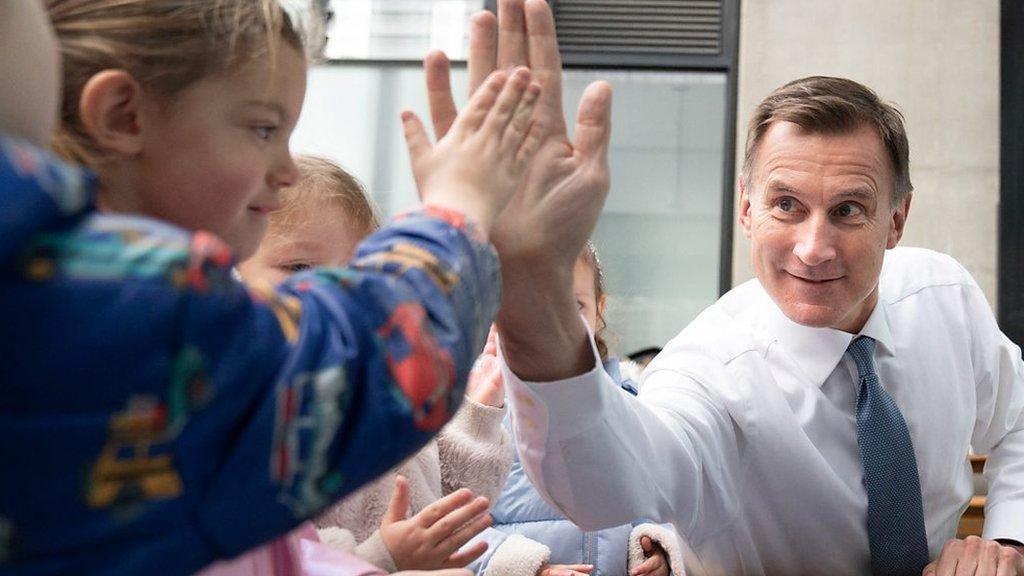Budget 2023: Pension perks to the highest paid likely to be the next political flashpoint
- Published

"A steady as she goes Budget." That's how one senior figure described it to me.
Fireworks have rather gone out of fashion after the political pyrotechnics of the last year.
The backdrop is clear: it is bleak. Just not as bleak as some thought it would be.
Wages have been stagnant for many, year after year after year, and are likely to remain so. Living standards are squeezed.
The Office for Budget Responsibility - the government's independent economic forecaster - says real household disposable income per person will fall more between last year and next year than at any time since records began in 1956.
The tax burden is high, reaching a post-war high in 2027. And for millions of people, income tax is going up.
Yes, you read that right, and no, you didn't hear the chancellor talk about it. So what's going on?
The thresholds at which people start paying income tax, or start paying the higher rates, are not changing.
But as wages tick upwards, people cross those thresholds and start paying a higher rate for every extra pound they earn.
The forecast suggests by 2027 that will mean 3.2 million new income taxpayers, paying 20p in the pound on earnings over £12,500.
There will be 2.1 million new higher rate taxpayers, starting to pay 40p in the pound on earnings over £50,000 a year and around 350,000 new additional rate taxpayers, paying 45p in the pound, on earnings over £150,000 a year.
So far, so rather hard to sell from the government's perspective.
Jeremy Hunt is seeking to present himself as a responsible and cautious economic custodian, seeking to address some of the most thorny of problems.
One of the biggest: luring people back to work, whether young parents or people in their 50s and 60s.
The provision of childcare in England is a keenly fought political space. The Conservatives want to appear competitive as Labour sets out its rival pitch.
There is deep pride within government at having settled things down after all the recent turbulence.
When I interviewed Jeremy Hunt, he sought to explain away those rising income tax levels as responsible: the pandemic and energy prices rocketing have been vastly expensive to the government and they need to be paid for.
Mr Hunt also claimed that the economic shocks of Liz Truss's brief and disastrous premiership were over. But the opinion polls suggest voters have not yet forgiven the Conservatives.
Next comes the detailed scrutiny of the Budget. And the political flashpoint looks like it will be those pension perks being offered to the very highest paid.
Necessary, argues the government, to ensure vastly experienced cancer surgeons and the like remain in operating theatres and not on golf courses.
Unfair, argue Labour, as it amounts to a massive tax cut for the already very well off. Expect the shadow chancellor, Rachel Reeves, to push it to a vote in the Commons next week.
Some on the opposition benches are comparing the idea to Liz Truss's plan to cut the rate of income tax for the very highest earners, a plan that didn't survive for long in contact with reality.
Will this feel as totemic? Let's see - Labour are determined to try to make it so.
Related topics
- Published15 March 2023

- Published15 March 2023

- Published15 March 2023
